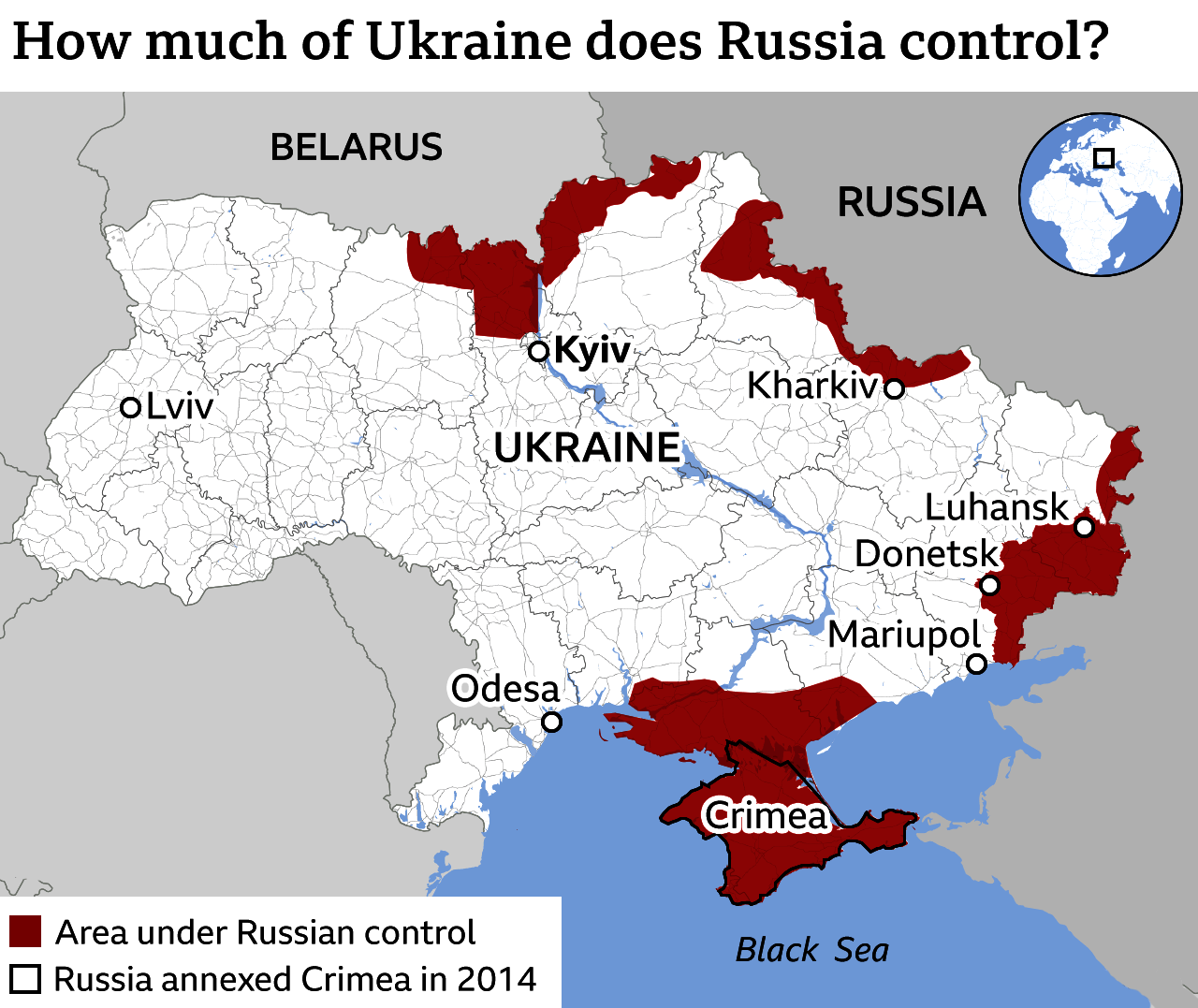International Relations
UNGA Resolution on Russia-Ukraine
- 03 Mar 2022
- 7 min read
For Prelims: United Nations General Assembly (UNGA), UN Security Council (UNSC), International Court of Justice, Nature of UN resolutions.
For Mains: Russia’s war over Ukraine, Effect of Policies & Politics of Countries on India's Interests.
Why in News?
Recently, India has abstained at the United Nations General Assembly (UNGA) to condemn Russia’s invasion of Ukraine. The emergency special session was convened by UNGA for discussing a resolution that called for Russia to unconditionally withdraw its troops.
- The resolution was discussed under the rubric of the “Uniting for Peace” resolution.
- The General Assembly session was convened after a similar resolution had failed to pass the U.N. Security Council (UNSC) when Russia exercised its veto.
What is Uniting for Peace Resolution?
- About: UN General Assembly resolution 377(V) is known as the Uniting for peace resolution which was adopted in 1950. The most important part of resolution is section A which states that where the Security Council, because of lack of unanimity of the permanent members, fails to exercise its primary responsibility for the maintenance of international peace and security, the General Assembly shall seize itself of the matter.
- Origin: The Uniting for Peace resolution was initiated by the United States, in October 1950, as a means of circumventing further Soviet vetoes during the course of the Korean War.
- Objective: Under this, the UNGA granted to itself the power to deal with threats to the peace if the UNSC fails to act after a veto by a permanent member.
- Such an interpretation sees the UNGA as being awarded 'final responsibility' for matters of international peace and security, by the UN Charter.
- Emergency Special Session (ESS): If not in session, the General Assembly may meet using the mechanism of the emergency special session. To date, 11 emergency special sessions have been convened.
- First ESS was instigated after France and UK veto over UNSC resolution 119 during the Suez Crisis 1956.
What are the Key Points of the resolution?
- The resolution, co-sponsored by 96 countries, needed two thirds of those present and voting to support it, for it to pass.
- It condemns the 24th February 2022 ‘special military operation’ by Russia over Ukraine.
- It says no territories acquired through force (Donetsk and Luhansk) will be recognised and calls for Russia to “immediately, completely and unconditionally” withdraw from Ukraine.
What is India’s Stand and Concerns?
- India’s Permanent Representative to the UN, T. S. Tirumurti, said that the “safe and uninterrupted passage” of Indian nationals, especially students, was India’s “foremost priority”.
- India also called for an “immediate ceasefire” and humanitarian access to conflict areas.
- India hoped that the second round of talks between Russia and Ukraine would yield positive results.
- Russia’s actions have left India in an uncomfortable position as it attempts to balance its interests with both Russia and the Western Countries.
- However, India’s desire to remain an “abstentionist” power is being called into question.
- Given its experiences in its own neighbourhood, with China and Pakistan, India is also wary of the implications of not condemning one country unilaterally attempting to change the borders it shares with another.
- India urges that all Member States demonstrate their commitment to the principles of the UN Charter, to international law and respect for sovereignty and territorial integrity of all states.
- A number of countries in India’s neighbourhood supported the resolution — Bhutan, Nepal, and the Maldives, for instance. Afghanistan, currently run by a militant organisation (the Taliban), and Myanmar, currently ruled by a junta (military), also voted in favour of it.
- Bangladesh, Pakistan and Sri Lanka, like India, abstained. China also abstained.
Are UN resolutions binding?
- Resolutions and decisions are formal expressions of the opinion or will of UN organs.
- The nature of the resolution determines if it is considered binding on States.
- Articles 10 and 14 of the UN Charter refer to General Assembly resolutions as "recommendations".
- The recommendatory nature of General Assembly resolutions has repeatedly been stressed by the International Court of Justice.
- However, some General Assembly resolutions dealing with matters internal to the United Nations, such as budgetary decisions or instructions to lower-ranking organs, are clearly binding.
- In general, resolutions adopted by the Security Council acting under Chapter VII of the Charter, are considered binding, in accordance with Article 25 of the Charter.
- However, they are subject to veto exercised by permanent members of UNSC.
Way Forward
- Given India’s aspirations for global leadership and the oft quoted motto of “Vasudhaiva Kutumbakam”. It may become necessary for India to engage more deeply with the conflict in Europe, which is now a global concern.







